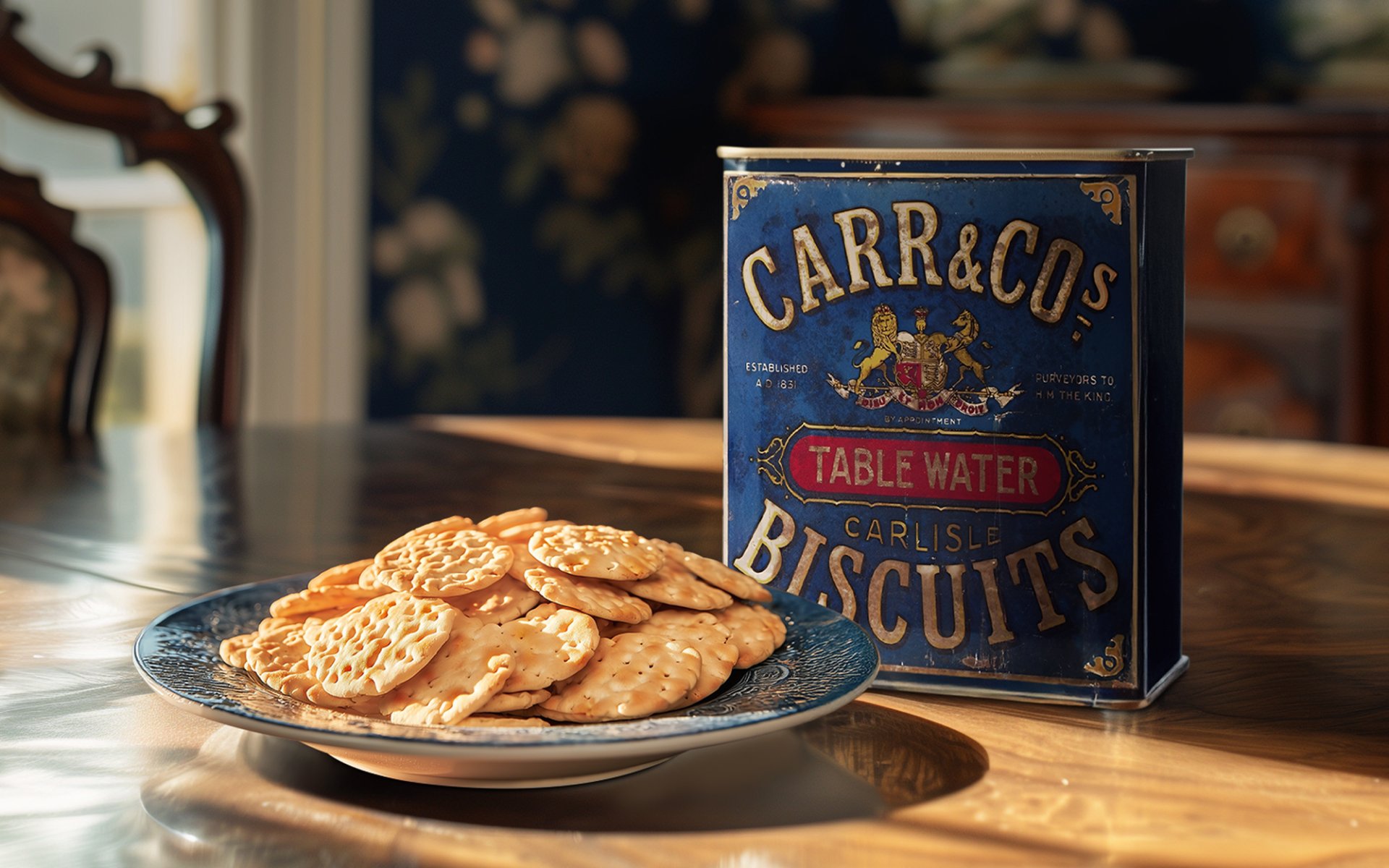Carr's Crackers

In the world of baked goods, few brands have stood the test of time for nearly 200 years, offering a compelling story as rich as their familiar taste. One such brand is Carr's Crackers, an enduring cracker brand from England. It began as a small bakery and grew into one of the largest bakery companies, maintaining its leadership in cracker sales in the United Kingdom for almost two centuries. Today, Carr's Crackers are distributed worldwide. Beyond its signature Table Water Crackers, the brand offers other varieties like Whole Wheat and Rosemary, as well as lighter textured crackers such as Melts.
The Beginning of a Pioneering Entrepreneur: Jonathan Dodgson Carr
Jonathan Dodgson Carr, the brand's founder, grew up in a merchant family in Kendal, England. He began training as a baker at the age of 14, which instilled in him a deep knowledge and skill in baking. In 1831, Carr decided to leave home to establish his own business. He walked from his birthplace to Carlisle, a city renowned for its milling industry and a significant transportation hub due to its large railway station, recognizing a clear business opportunity.
Carr built his own bakery, which also functioned as a mill, enabling him to produce goods day and night. In addition to baking bread, he began selling biscuits packaged in tins to preserve their crispness. These were called Table Water Biscuits (now known as Table Water Crackers). Made with only flour and water, without artificial colors or flavors, they were baked until crisp in traditional brick ovens. This product was an evolution of the inexpensive "Ship biscuit" sailors carried for sustenance, notable for using water instead of oil in its ingredients, allowing for longer storage, ideal for sea voyages.
Carr's Innovation and Business Expansion
Carr was also the first to use steam-powered machinery in the production of biscuits or crackers, including dough mixers and cutters to shape the dough. He innovatively crafted these baked goods into unique shapes, transforming their image from cheap provisions into modern, desirable items. Furthermore, packaging in tins made them easy to carry and transport, crucial for distribution. Carr's bakery was conveniently located near the railway station, making it easily discovered by travelers. As his business expanded, he established a flour mill in 1836. Besides producing baked goods, he also branched into selling flour, demonstrating his vision for integrated business expansion.
Within a short period, Table Water Crackers became famous throughout the United Kingdom. By 1841, Carr's crackers received a Royal Warrant from Queen Victoria, signifying their quality was deemed sufficient for the royal household. This royal endorsement further boosted his reputation, enabling Carr's factory to produce up to 400 tons of crackers annually. Table Water Crackers remain the brand's signature product to this day, with production methods largely preserved.
Carr: Entrepreneur and Social Reformer
Carr was a devout man and a member of the Quaker denomination, a branch of Protestant Christianity. He was not just a businessman but also a highly ethical individual who deeply cared for his employees' well-being. He managed his more than 90 factory workers like a family, actively improving their living conditions, building a library for laborers, enhancing community hospitals, and participating in the anti-slavery movement, showcasing his role as an important social reformer of his era.
Additionally, Carr played a significant role in opposing the Corn Laws, legislation concerning grain and cereal trade in the United Kingdom from 1815-1846, which kept prices artificially high. While benefiting farmers, these laws severely increased the cost of living for the general populace, making life difficult. After the repeal of these laws, Carr became the first British importer of high-quality Canadian wheat at reasonable prices, alleviating public hardship and setting a new standard for trade.
The Growth of Carr's Empire and Business Transition
Carr took only 15 years from establishing his first bakery to becoming a major producer. Starting with just 4 types of crackers, he innovated up to 70 new cracker varieties by 1860, demonstrating his creativity and market expansion capabilities. Although Carr himself passed away in 1884, his four heirs successfully continued to build on the production, expanding the cracker range to 128 varieties and employing a total of 1,000 staff members, marking significant growth.
However, despite the heirs' considerable expertise in factory operations and baking, they lacked proficiency in business management and advertising. Consequently, Carr's Crackers eventually came under the ownership of larger companies, first Cavenham Foods, before being sold to its current owner, United Biscuits, in 1972. The brand also established a marketing presence in America through Kelloggs before beginning production and export worldwide, truly establishing Carr's Crackers as a global brand.
Carr's Crackers Today: A Lasting Legacy
Today, although Table Water Crackers no longer bear the Royal Warrant, they proudly carry the endorsement of the city of Carlisle instead, recognizing the brand's significant contribution to the city's economy and its status as a local icon. The original factory in Carlisle, though now rebranded and also producing goods for other brands, is still affectionately referred to as Carr's by local residents, reflecting the deep connection and long history of the brand with the community. It remains one of the oldest cracker factories in the world that has never ceased production, a testament to the enduring legacy of Carr's Crackers.


